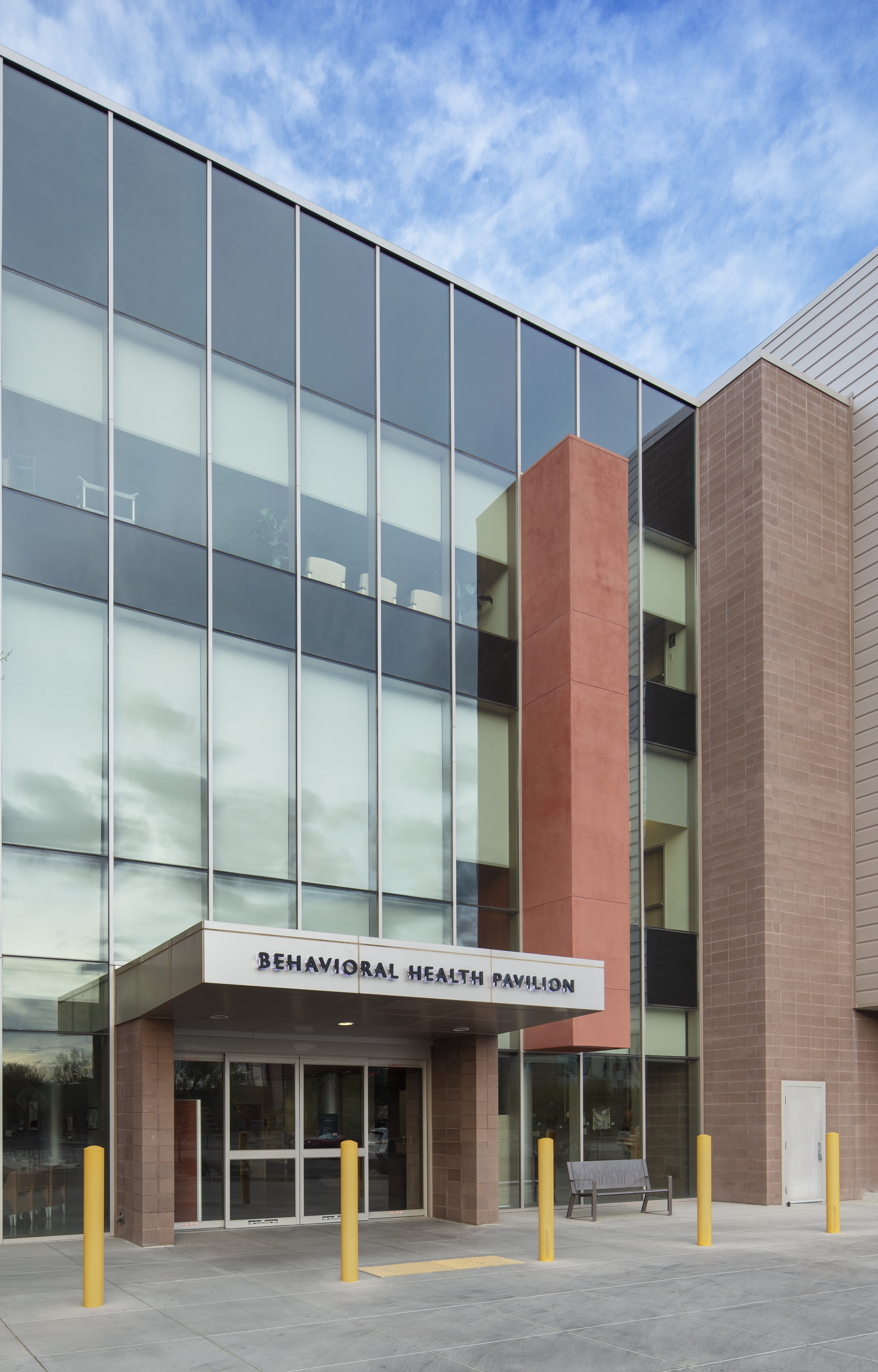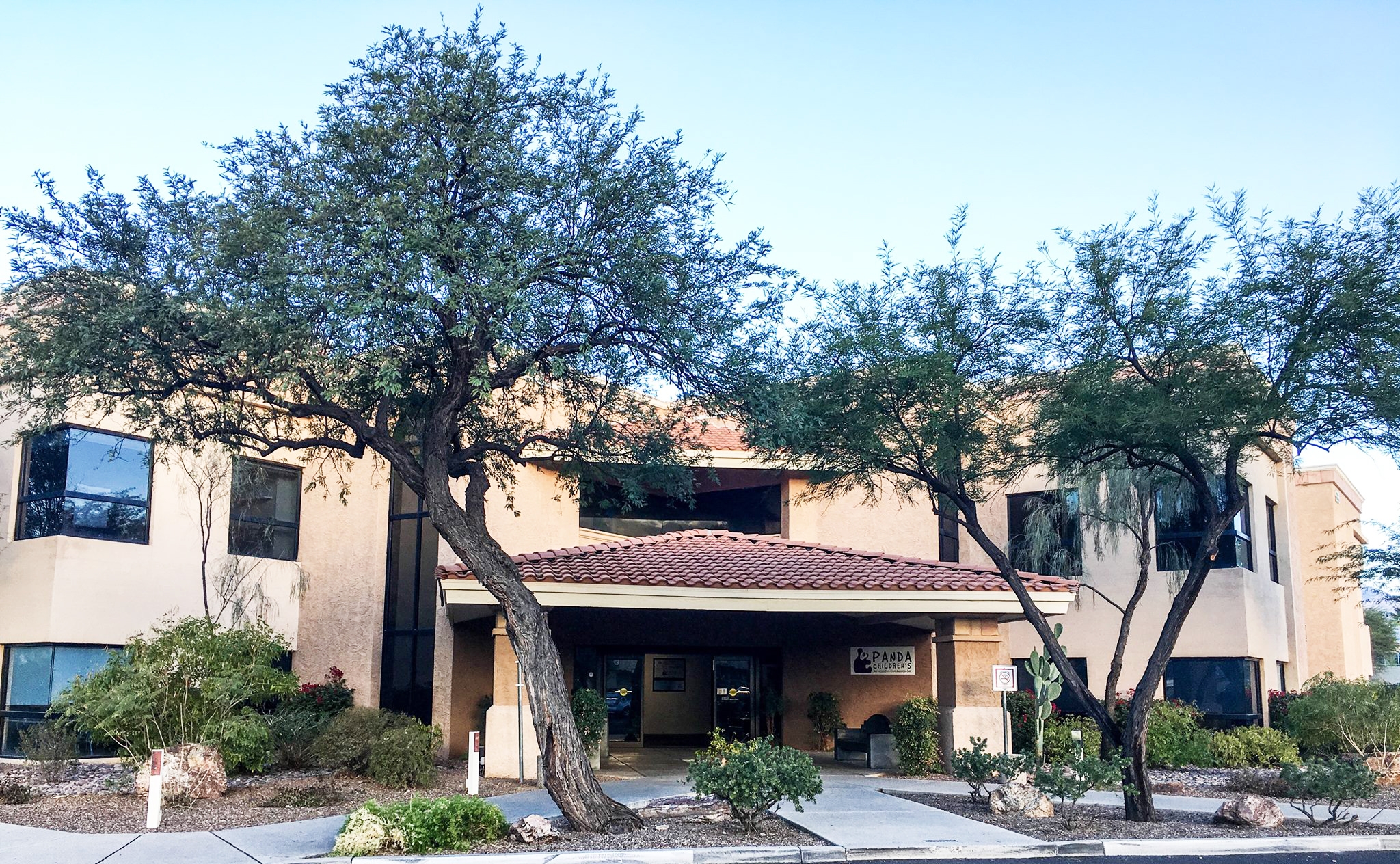 Our program offers unique and comprehensive training opportunities in:
Our program offers unique and comprehensive training opportunities in:
- Working with inpatient and outpatient populations
- Providing care to high-need and rural communities
- Serving Native American populations
- Training in integrated, interdisciplinary behavioral and primary care settings
- Telemedicine practice and training
- Border Health
- Psychology in the juvenile judicial system
- Health Psychology (sleep, pain, chronic illness, biofeedback)
- First episode psychosis care
- Psychodiagnostic, ADHD, learning disability, and presurgical assessments, along with the ability to have some exposure to neuropsychological evaluation
Interns are required to rank order three or more rotations where they will spend the equivalent of a minimum of one day a week each. Interns are placed at sites by taking into consideration their interests, preferences, and site capacity. Rotations are six to twelve months long. Training sites include, but are not limited to, the following. Please see the individual websites for detailed information on the locations and their services.
 Banner Alzheimer’s Institute (BAI):
Banner Alzheimer’s Institute (BAI):
Banner Alzheimer’s Institute has memory and movement disorders clinics that provide comprehensive evaluation, treatment, and support for patients and care-partners in an interdisciplinary setting. Referrals to neuropsychology include largely geriatric patient populations for neuropsychological assessment or intervention for mild cognitive impairment and dementia. Referral questions may also involve assessment of patients with movement disorders, other neurological conditions, brain injury, stroke, or co‐morbid mood disorders. Interns can observe or assist with neuropsychological assessments with older adults in the clinic and with participants enrolled in the Alzheimer’s Disease Research Center or observe cognitive intervention with patient and care-partner dyads. Trainees work as part of an integrated care team that includes neuropsychologists, psychiatrists, neurologists, a geriatrician, social workers, and a physical therapist providing comprehensive care to patients and their families. There may be opportunities to observe and learn from these interdisciplinary providers, and interns are invited to attend an interdisciplinary case conference.
Banner - University Medical Center South Behavioral Health Pavilion Inpatient (BUMC-S BHP):
This is the largest provider of ambulatory psychiatric and psychological services in Tucson At BUMC-S BHP, there are several training areas, including:
Banner - University Medical Center South Behavioral Health Pavilion Outpatient (BUMC-S; adult/child track): This is the largest provider of ambulatory psychiatric and psychological services in Tucson that gives care to children/adolescents, adults, and late-life patients and their families for a range of conditions, including depression, anxiety, addiction, psychosis, and other mental and behavioral health conditions.
 At BUMC-S, there are several training areas, including:
At BUMC-S, there are several training areas, including:
Behavioral Health Pavilion Inpatient (BHPIP): This is one of the largest adult psychiatric inpatient facilities in Tucson with a 66-bed capacity. Comprehensive interdisciplinary services are provided. A fully equipped state courtroom within BUMC-S serves as the adjudication site for court-ordered treatment of patients. Interns learn about and assist in the delivery of high-quality behavioral health care in a Level 1 treatment setting, including consultation services with an interdisciplinary team, and brief, targeted therapies with current inpatients. Experiences with long-term care of more complicated psychiatric patients can be found on the Tucson campus.
Behavioral Health Pavilion Outpatient (BHPOP): Interns are able to deliver general outpatient services to children, adolescents, adults, and geriatric patient and their families for a range of conditions including depression, anxiety, addiction, psychosis, and other mental and behavioral health conditions.
Assessment: Interns complete full assessment reports, including informed consent, clinical interview, testing administration and interpretation, report-writing, and feedback with patient and patient families for minor children. Assessments may include pre-surgical evaluations (bariatric, pain, organ transplant), cognitive testing (Attention-Deficit/Hyperactivity Disorder, Specific Learning Disorder), and personality assessments. Additionally, assessment experiences can be requested from the assessment supervisors, which may include completing additional or specialized assessments (e.g., forensic asylum evaluations).
Behavioral Sleep Medicine (BSM): Interns learn how to recognize, screen for, diagnose, and treat sleep disorders. Includes administration and scoring of assessment instruments, clinical interviews, case conceptualization, and consideration of other medical and psychiatric conditions.
Child & Adolescent Anxiety Clinic (Unavailable Fall 2026): At this interdisciplinary clinic, interns provide comprehensive assessment and treatment of anxiety disorders in children and adolescents, ages 0 to 18 years, and receive in-depth training on the assessment of childhood anxiety disorders and the delivery of psychotherapy and pharmacotherapy.
Pain Psychology: Interns learn how to assess for and treat behavioral and psychiatric concerns that contribute to chronic pain; how to conceptualize cases and consider related medical and psychiatric conditions; and administer, score, and interpret a variety of assessment instruments for pre-surgical candidacy.
Early Psychosis Intervention Center (EPICenter): The community mental health program offers evidence-based, phase-specific treatments for adolescents and young adults (15-35 years old) in the early course of a psychotic illness. Interns learn about the prevention and treatment of adolescents and young adults (and their families) who are living with psychotic illnesses.

Whole Health Clinic-Adult (WHC-A): A multidisciplinary team provides behavioral and physical healthcare to vulnerable populations, many with serious mental illnesses, who are often unemployed, without housing, and dependent on Medicaid to cover their treatment costs. Interns are integrated into a multidisciplinary care team that includes social workers and peer support specialists and learn to provide comprehensive and coordinated ambulatory care to among the most seriously mentally ill in our community.
Whole Health Clinic-Child (WHC-C): Interns in the child track receive training on the assessment of challenging behavior in individuals with and without neurodevelopmental disorders (ages 2 to 18), including function-based treatment, parent management training, school consultation, acceptance and commitment therapy, and assessment for OCD and tic disorders.
Banner University Medicine - Alvernon Family Medicine Clinic: The Alvernon Family Medicine clinic provides primary care behavioral health (PCBH) services to patients across the Banner Tucson primary care service line. The program embeds therapists in the primary care setting to achieve a twofold aim:
- Deliver early behavioral health prevention and intervention for patients who present with low to moderate behavioral health needs.
- Identify patients who present with higher levels of behavioral health needs and provide coordination of care with community behavioral health systems.
The intern will work closely with family medicine residents, fellows, and physicians to augment the patient’s overall primary care treatment plan. Therapy is intended to be short-term (8-12 sessions) and patients range in age from childhood to older adulthood. Clinical presentations vary and include depression, anxiety, OCD, grief, ADHD (in children and adults), adjustment disorder, and sleep disorders. Clinical experiences include individual CBT, exposure and response prevention, unified protocol, acceptance and commitment therapy, and mindfulness-based treatment approaches. In addition, the Alvernon Family Medicine Clinic sees a large refugee patient population, who often present with PTSD, adjustment disorder, depression, and anxiety. These services are provided with the use of an interpreter. If of interest, additional experiences include being involved in teaching of the family medicine residents by giving behavioral health lectures. Interns will also have the option of participating in a Collaborative Care Model (CoCM) program. This rotation might be a particularly interesting opportunity for an intern who would like to continue their career in academic medicine or primary care behavioral health.
Crisis Response Center (CRC): The CRC is a 24/7 walk-in psychiatric urgent care for children and adults in crisis. Anyone may access service regardless of their ability to pay. This is a no-wrong-door facility, meaning they will triage and transfer patients, if necessary, for medical treatment or substance abuse services. Services include 24-hour observation, detox, and an on-site courtroom for patients admitted through the legal system. Interns will be present and will participate during unit staffing with Behavioral Health Medical Provider (BHMP), registered nurses (RNs), and case managers (CMs). Interns will also be present during psychiatric evaluations and will also interact with patients during groups and other unit activities, such as play and mealtime. BHMP and interns will discuss best practice articles that are applicable to the patients seen that day.
Pima County Juvenile Detention Center (Unavailable Fall 2026): The Center’s aim is to stabilize the youths' harmful behavior, assist their recognition of the need to change, teach appropriate accountability to others and the law, and successfully transition to the community. Interns conduct mental health evaluations with detained youth in order to better understand their psychological functioning and guide recommendations for treatment.
Marana Healthcare (Unavailable Fall 2026): The integrated facility includes behavioral health services, primary care, addiction treatment, dental care, laboratory services, women’s health, urgent care, pediatrics, and internal medicine services. Marana Healthcare is recognized as a Patient-Centered Medical Home, which provides a unique opportunity for interns to become integrated into this unique model of comprehensive care delivery.
Mariposa Community Health Center: Mariposa is a Federally Qualified Health Center with locations in Nogales, Rio Rico, Tubac and Patagonia. Mariposa offers a “one stop wellness” model of integrated care that recognizes and responds to the whole person from physical to social to psychological needs. Services include adult/internal medicine, pediatrics, obstetrics and gynecology, general surgery, dentistry, behavioral health and two full-service pharmacies. They also feature community outreach programs from their Community Health Services Department, which includes an entire building devoted to WIC for Women, Infants and Children. Integrated Behavioral Health: Mariposa’s medical team recognizes that one of the leading causes of depression and anxiety is chronic illness. For this reason, Mariposa has integrated behavioral health care with regular medical care. The Health Center’s Licensed Professional Counselors are members of the medical staff and work hand in hand with the physicians to ensure that patients receive the help they need, both physically and emotionally. Specialty Behavioral Health: Mariposa is expanding its behavioral health services in 2023. Please note: Mariposa has requested that at least part of this rotation be in person. Interns electing this rotation may be asked to travel to Mariposa’s clinics in Santa Cruz County, located 45-60 minutes south of Tucson.
Strategic Alternative Learning Techniques (SALT) Center – ABLE Clinic: The Strategic Alternative Learning Techniques (SALT) Center at the University of Arizona is a nationally recognized academic support program for college students with learning or attention challenges. Since 1980, the SALT Center has become the most comprehensive program of its kind in the nation and has helped thousands of students successfully complete postsecondary education. The goal is to promote independence, confidence, and self-advocacy for each student, in addition to teaching students specific learning strategies based on each individual’s challenges. The ABLE Clinic / Assessment services at the SALT Center provides university students and community members access to comprehensive psychological and psychoeducational assessments to support self-awareness and self-advocacy.
 Tuba City Regional Healthcare Clinics: The Joint Commission accredited health center provides services to a 6,000 square mile area and serves as a referral center for the western part of the Navajo and Hopi Reservations. The local schools serve about 1,400 students, some of whom must travel for hours to access their schools and/or reside in dorms during the week due to the distance. The telehealth clinics have been in operation since 2000 and serve teens from the Hopi and Navajo tribes. Interns assist in conducting diagnostic evaluations, consultations, and psychotherapy for Native American adolescents. They acquire cultural and telehealth competence and interdisciplinary and interprofessional consultative skills, while learning the ethical, legal, technological, and clinical parameters for conducting telehealth sessions effectively. These clinics provide integrative care in the reservation setting and support the work plan of training in tribal facilities.
Tuba City Regional Healthcare Clinics: The Joint Commission accredited health center provides services to a 6,000 square mile area and serves as a referral center for the western part of the Navajo and Hopi Reservations. The local schools serve about 1,400 students, some of whom must travel for hours to access their schools and/or reside in dorms during the week due to the distance. The telehealth clinics have been in operation since 2000 and serve teens from the Hopi and Navajo tribes. Interns assist in conducting diagnostic evaluations, consultations, and psychotherapy for Native American adolescents. They acquire cultural and telehealth competence and interdisciplinary and interprofessional consultative skills, while learning the ethical, legal, technological, and clinical parameters for conducting telehealth sessions effectively. These clinics provide integrative care in the reservation setting and support the work plan of training in tribal facilities.
Research: Sleep & Health Research Program: The Sleep Health Research rotation is open to any intern who is interested in building a career in research related to sleep health. This rotation will include 1 day/week involvement in the Sleep and Health Research Program. It includes some readings, weekly meetings with Dr. Grandner, and development of a plan to transition from an internship to a research-focused postdoc. This typically includes orienting to the UArizona research programs, preparing and writing manuscripts and grants, and planning for next career steps. Ideal applicants will already have experience with research, especially in areas that overlap with the Sleep and Health Research Program.
Research: SCAN Lab: The Social Cognitive and Affective Neuroscience Lab (SCAN Lab) conducts neurocognitive, behavioral, psychophysiological, and neuroimaging research with the goal of optimizing neurocognitive performance and facilitating resilience, mental health, and wellbeing. We focus on understanding the effects of various stressors on emotional and cognitive processes, and potential countermeasures against those stressors. In healthy individuals, we focus on the role of sleep and sleep deprivation on emotional and higher order cognitive processes and emotional functions, as well as interindividual difference factors that contribute to resilience or vulnerability to the effects of sleep deprivation. We are validating computerized tools to improve the timing and administration of stimulant countermeasures like caffeine, novel machine learning algorithms to assess neuropsychological performance, and online training programs to build emotional intelligence and resilience skills. We also utilize light exposure treatments to modulate the circadian rhythms of sleep, alertness, and mood to bolster mental health and performance and to facilitate recovery from mild traumatic brain injury (mTBI) and posttraumatic stress (PTSD), and neuromodulation techniques like transcranial magnetic stimulation (TMS) to improve sleep. Our lab specializes in the use of neuroimaging techniques, like functional magnetic resonance imaging (fMRI), functional connectivity, diffusion tensor imaging (DTI), and structural volumetric imaging, as well as collection of polysomnography, actigraphy, and the use of clinical neuropsychological assessments. Interns will have the opportunity to participate in ongoing data collection efforts and to carry out statistical analysis of behavioral and/or neuroimaging data, with the goal of writing and submitting a first authored manuscript for publication during the training year.
Research: Brain & Mood Health Lab: The Brain & Mood Health Lab, within the Department of Psychiatry, studies the treatment of psychiatric conditions, with a focus on mood disorders, suicide prevention, and novel interventions. Our vision is to be at the forefront of transforming psychiatric care, research, and innovation on a global scale. We strive to advance personalized treatment modalities and comprehensive care for individuals with psychiatric disease. Interns will have the opportunity to participate in ongoing data collection efforts and to carry out statistical analysis of clinical trial data, with the goal of writing and submitting a first authored manuscript for publication or poster presentation during the training year.

